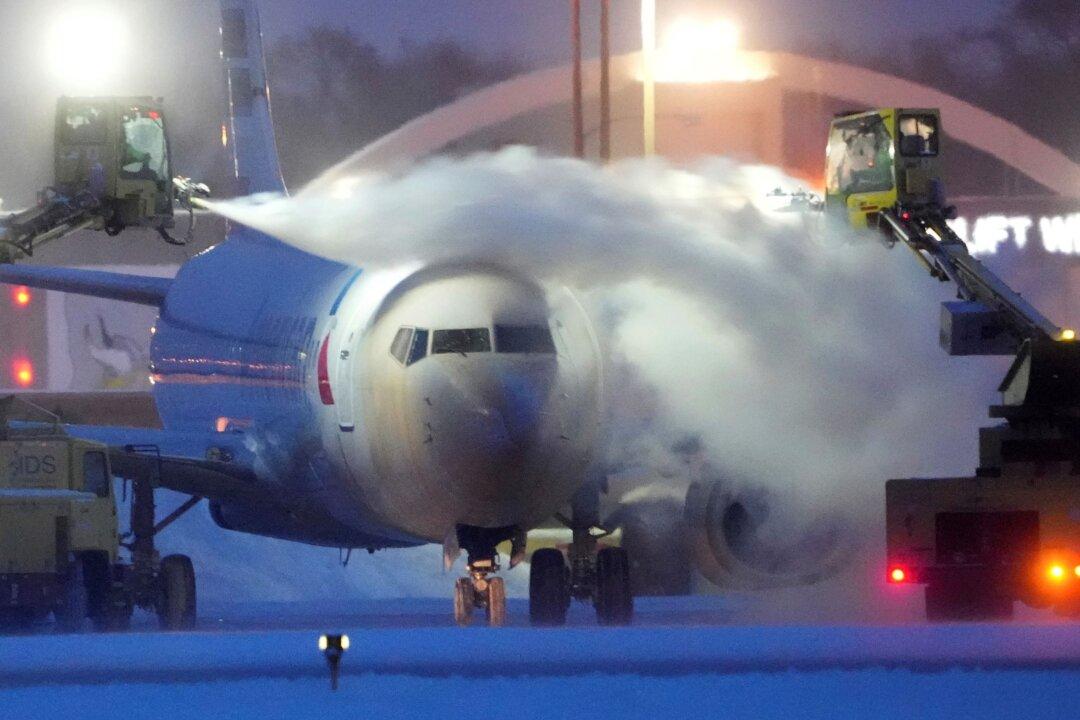MISSION, Kan.—A wild winter storm continued to envelop much of the United States on Saturday, bringing blinding blizzards, freezing rain, flooding, and life-threatening cold that created mayhem for those traveling for the Christmas holiday.
The storm that arrived earlier in the week downed power lines, littered highways with piles of cars in deadly accidents, and led to mass flight cancellations.





